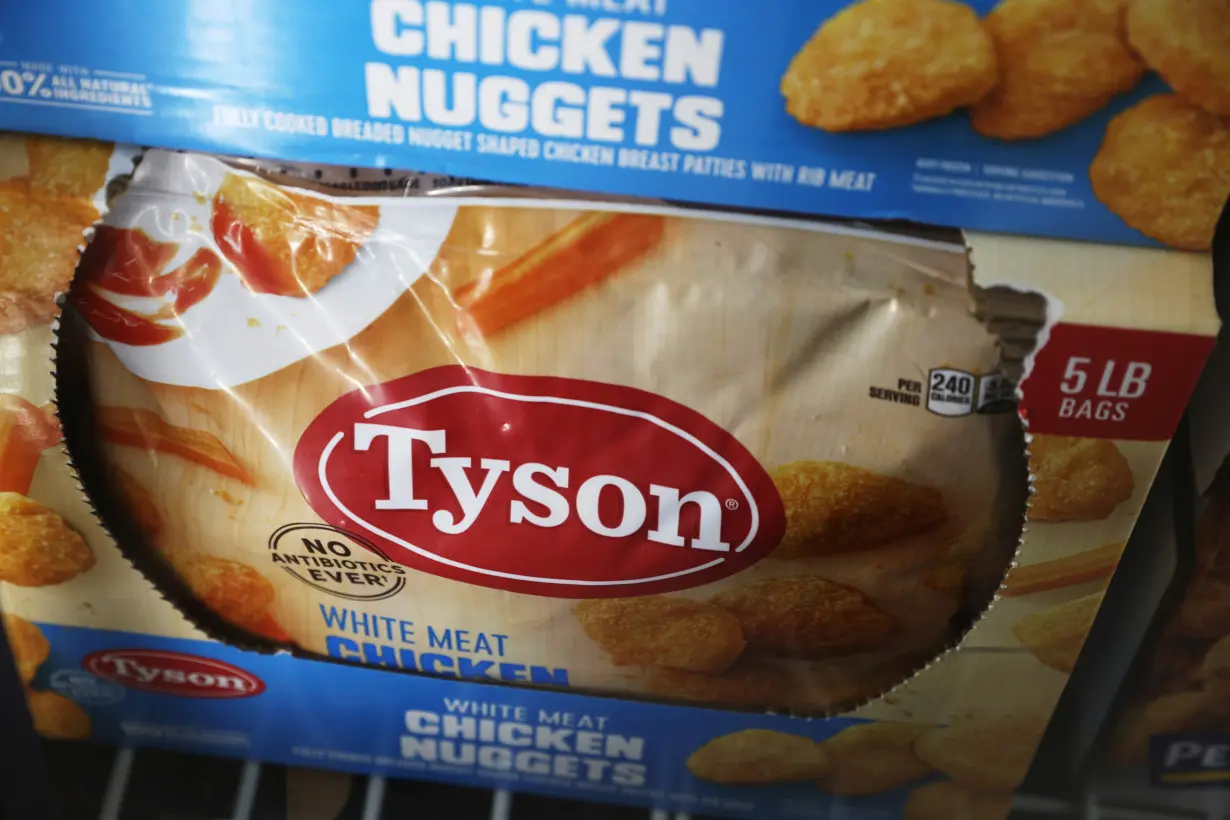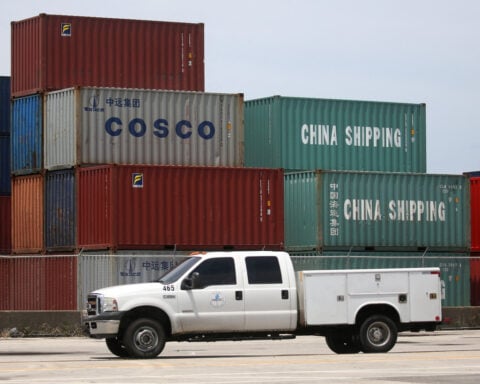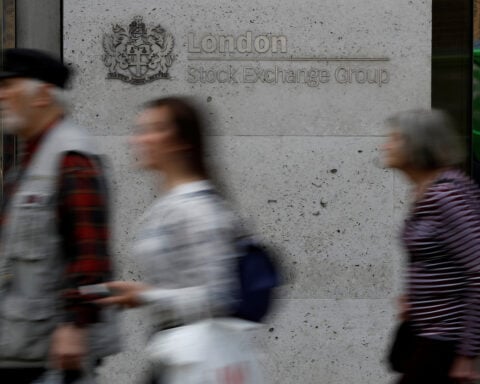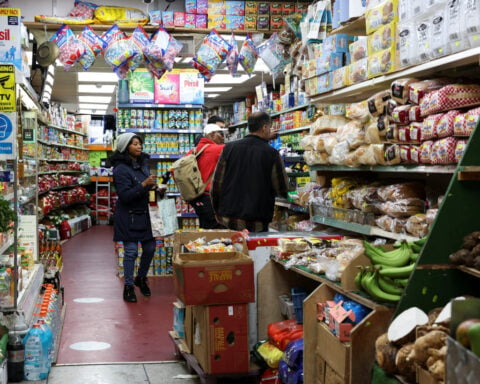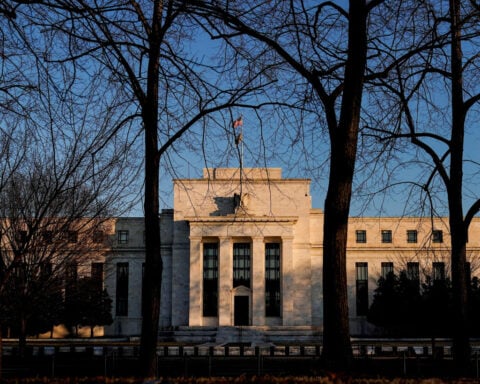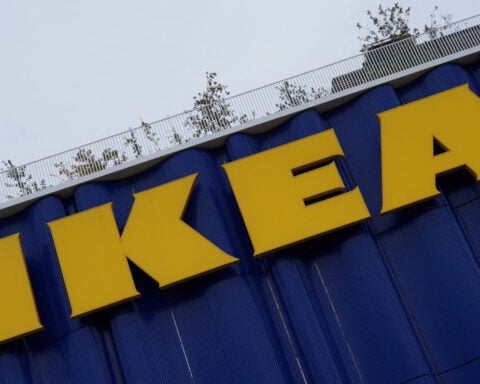By Tom Polansek
CHICAGO (Reuters) - Chicken prices at U.S. grocery stores have hit record highs and should stay elevated as Tyson Foods and other companies dial back poultry production to boost margins while inflation-weary shoppers buy chicken instead of beef and pork.
Higher chicken prices should improve earnings at top producers Tyson and Pilgrim's Pride , but will pinch consumers' pockets as they try to save money by turning away from higher-end proteins. One index shows chicken producer profit margins at their highest in a year.
U.S. consumption of chicken is expected to exceed 100 pounds per person this year for the first time ever, data from the U.S. Department of Agriculture shows.
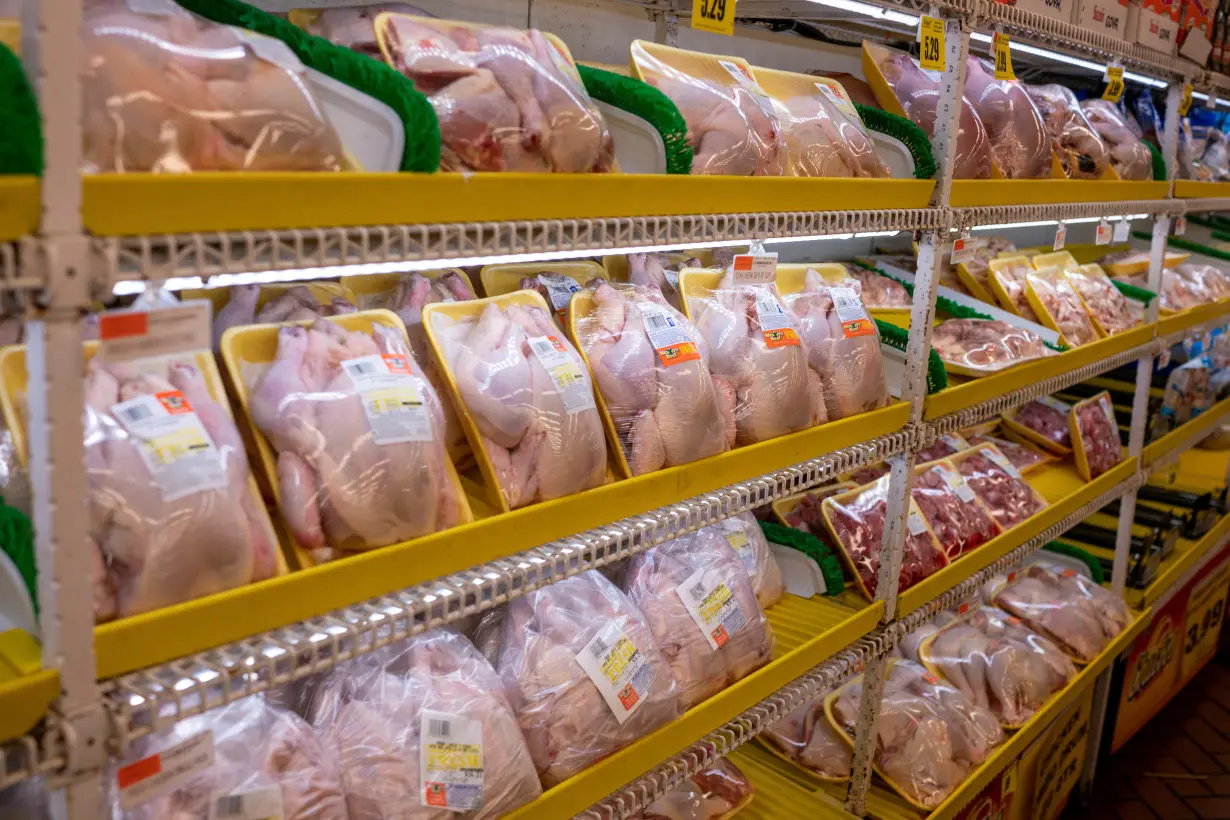
Beef consumption is forecast to drop to its lowest since 2018, as prices climb due to dwindling cattle supplies. Meanwhile, consumer spending cuts have knocked pork consumption to the lowest since 2015.
Arkansas-based Tyson, which sells all three types of meat, had to deal with a glut of chicken after earning massive profits when meat prices soared during the COVID-19 pandemic.
The company announced the closures of six U.S. chicken plants with nearly 4,700 employees this year to reduce costs. Its chicken business likely returned to profitability in the quarter ended Sept. 30 after two quarters of operating losses, analysts said.
Tightening supplies now favor producers' bottom lines.
U.S. facilities that hatch chicken eggs placed about 2.8% fewer eggs in incubators in the six weeks ending on Sept. 23, compared to a year earlier, according to U.S. government data. That was a sharp turnaround from the same period in 2022, when hatcheries set 3.6% more eggs in incubators.
Chicken producers placed about 2.7% fewer chicks for meat production over the six weeks through Sept. 23 from a year earlier, when there was a 4.5% increase. Cumulative placements for 2023 dropped below last year around the end of May, U.S. data shows.
"They cut back," said Bob Brown, an independent livestock market analyst. "That seems to have buoyed the chicken market."
An index of chicken prices and feed prices that reflects profitability for poultry producers in September hit its highest level in more than a year, said Brown, who maintains the index. Declining feed costs help producers improve margins, and corn prices are near the lowest in three years.
Chicken companies sought to constrain the weights of birds this summer as part of "efforts to limit production and restore profitability," Rabobank said. Lighter birds produce less meat for consumers.
In August, retail prices for whole fresh chickens and bone-in legs reached nominal records, the latest monthly U.S. Department of Agriculture data show. Drumstick prices climbed 10% from a nearly one-year low reached in February.
Wholesale prices have also rebounded.
The U.S. government last month trimmed its estimate for 2023 chicken production from August due in part to expectations for lower chick placements. Production is still expected to surpass 2022.
Producers moved to reduce placements after chicken supplies swelled last year.
Tyson CEO Donnie King said in February that executives overestimated how strong consumer demand would be for chicken in late 2022, leaving the company to resell excess inventories at a discount.
"That was a failure on their part," said Arun Sundaram, senior equity analyst at CFRA Research.
GROWING DEMAND FOR CHICKEN
Chickens raised for meat largely avoided bird-flu infections in 2022, keeping supplies ample as the worst-ever U.S. outbreak devastated flocks of egg-laying hens and triggered export restrictions on poultry.
Improving U.S. demand is now helping reduce excess supplies, Sundaram said. He forecasts Tyson's chicken business will report positive margins of 1.5% in the quarter ended Sept. 30 before jumping to 4% in fiscal year 2024. Quarterly results are expected in November.
"We've seen some recovery in chicken prices and we've seen some consumer prices start to level off," Tyson CFO John R. Tyson told investors last month. "We probably would have expected that to take place sooner."
Companies still have large supplies in freezers. U.S. inventories of frozen chicken breasts were a record high for August. Tyson also said this week that layoffs will expand to the second shift at a chicken facility in Wilkesboro, North Carolina, "in response to customer demand," signaling ongoing hurdles.
Further increases in chicken prices could threaten demand, said Adam Speck, senior commodity analyst for Gro Intelligence.
But consumers are still choosing chicken due to tighter beef supplies, after ranchers reduced their herds during three years of drought in the Great Plains.
"We should see improving demand for chicken going forward," said Bill Densmore, senior director for Fitch Ratings. "We'll see retail beef prices remain high."
(Reporting by Tom Polansek; Editing by Caroline Stauffer and David Gregorio)

 UK inflation unexpectedly eases in December, which could reduce pressure in bond markets
UK inflation unexpectedly eases in December, which could reduce pressure in bond markets
 Body count from South African mine siege rises to 60
Body count from South African mine siege rises to 60
 US importers rush in goods from China as Trump tariff threat looms
US importers rush in goods from China as Trump tariff threat looms
 Novak Djokovic breaks a tie with Roger Federer for the most Grand Slam matches in tennis history
Novak Djokovic breaks a tie with Roger Federer for the most Grand Slam matches in tennis history
 China's RedNote: what you need to know about the app TikTok users are flocking to
China's RedNote: what you need to know about the app TikTok users are flocking to
 British author Neil Gaiman denies ever engaging in non-consensual sex as more accusers come forward
British author Neil Gaiman denies ever engaging in non-consensual sex as more accusers come forward
